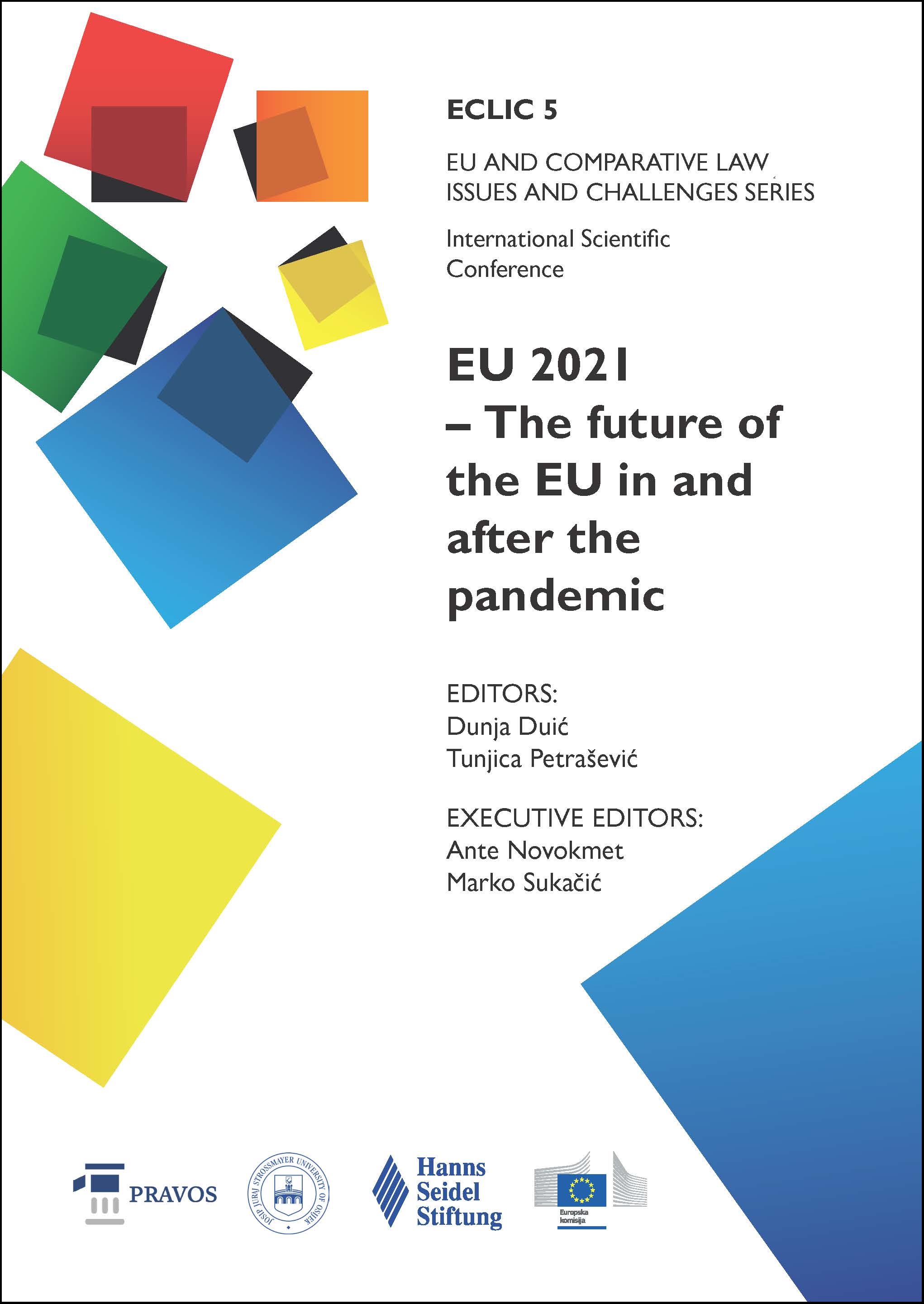EU LEGAL SYSTEM AND CLAUSULA REBUS SIC STANTIBUS
DOI:
https://doi.org/10.25234/eclic/18352Abstract
We are witnesses and participants of Copernican changes in the world which result in major crises/challenges (economic, political, social, climate, demographic, migratory, MORAL) that significantly change “normal” circumstances. The law, as a large regulatory system, must find answers to these challenges. Primarily, these circumstances relate to (i) the pandemic - Corona 19, which requires ensuring economic development with a significant encroachment on human freedoms and rights; (ii) globalization, which fundamentally changes the concept of liberal capitalism as the most efficient system of production of goods and services and democracy as a desirable form of government; (iii) automation, robotics, artificial intelligence, and big data are changing the ways we work, live, communicate, and learn in a Copernican manner. The law should serve to shape the relationship between people in order to realize a life of love and freedom. This is done to the greatest extent through the constitutional engineering of selected institutions. The legal system focuses on institutions that have a raison d'etre in their mission, which is read as “ratio legis”, as a desirable normative and real action in the range of causal and teleological aspect. Crisis situations narrow social cohesion and weaken trust in institutions. It is imperative to seek constitutional engineering that finds a way out in autopoietic institutions in allopoietic environment. We believe that the most current definition of law is that = law is the negation of the negation of morality. It follows that morality is the most important category of social development. Legitimacy, and then legality, relies on morality. In other words, the rules of conduct must be highly correlated with morality - legitimacy - legality. What is legal follows the rules, what is lawful follows the moral substance and ethical permissibility. Therefore, only a fair and intelligent mastery of a highly professional and ethical teleological interpretation of law is a conditio sine qua non for overcoming current anomalies of social development. The juridical code of legal and illegal is a transformation of moral, legitimate and legal into YES, and immoral, illegitimate and illegal into NO. The future of education aims to generate a program for global action and a discussion on learning and knowledge for the future of humanity and the planet in a world of increasing complexity, uncertainty and insecurity.
Downloads
Published
How to Cite
Issue
Section
License
Copyright (c) 2021 Zvonimir Lauc, Marijana Majnarić

This work is licensed under a Creative Commons Attribution-NonCommercial 4.0 International License.
Authors retain the copyright on the papers published in the Journal, but grant the right of first publication to the Journal. Papers accepted for publication or already published in ECLIC of the Faculty of Law in Osijek may be published by the author(s) in other publications only with proper notice of its previous publication in ECLIC.


